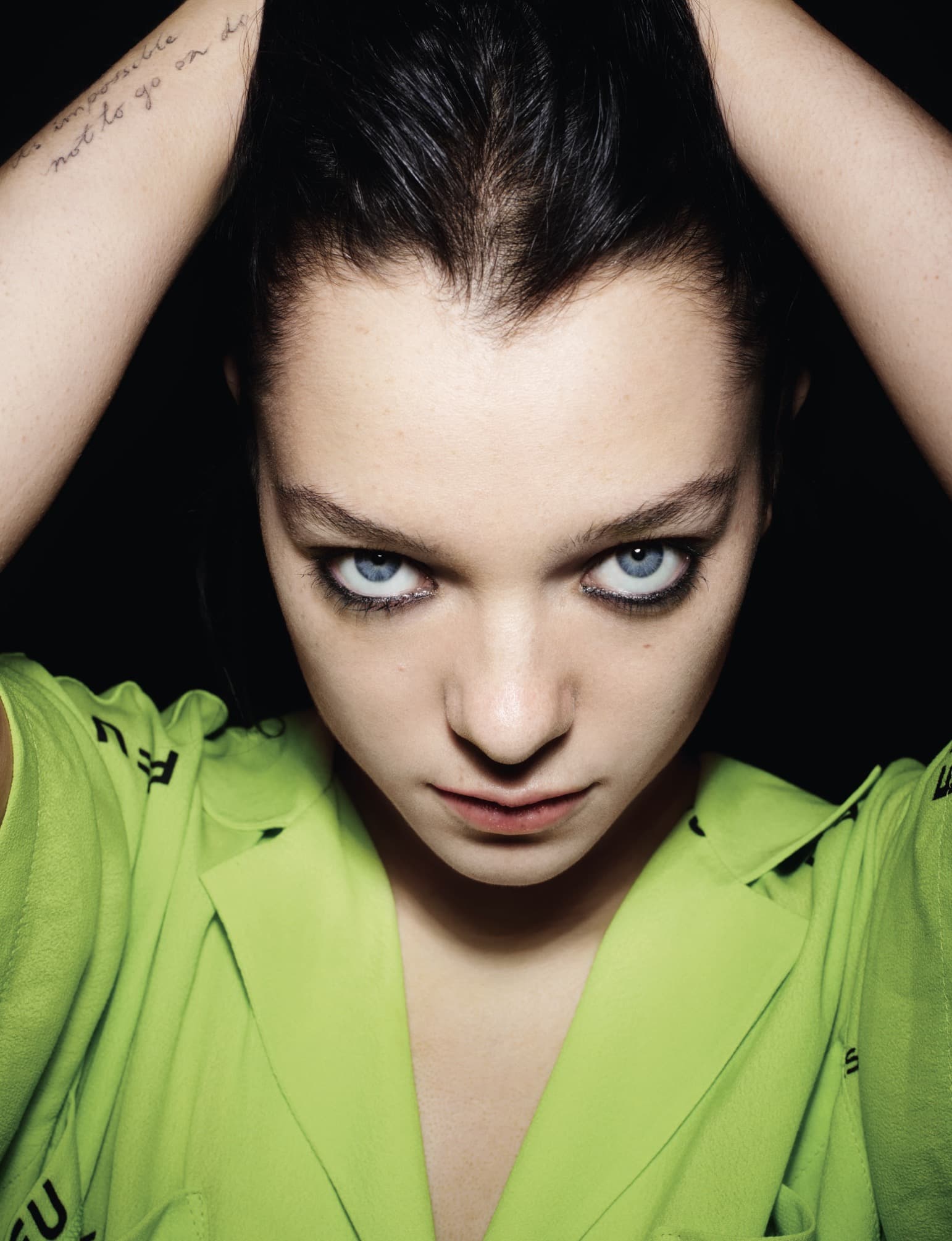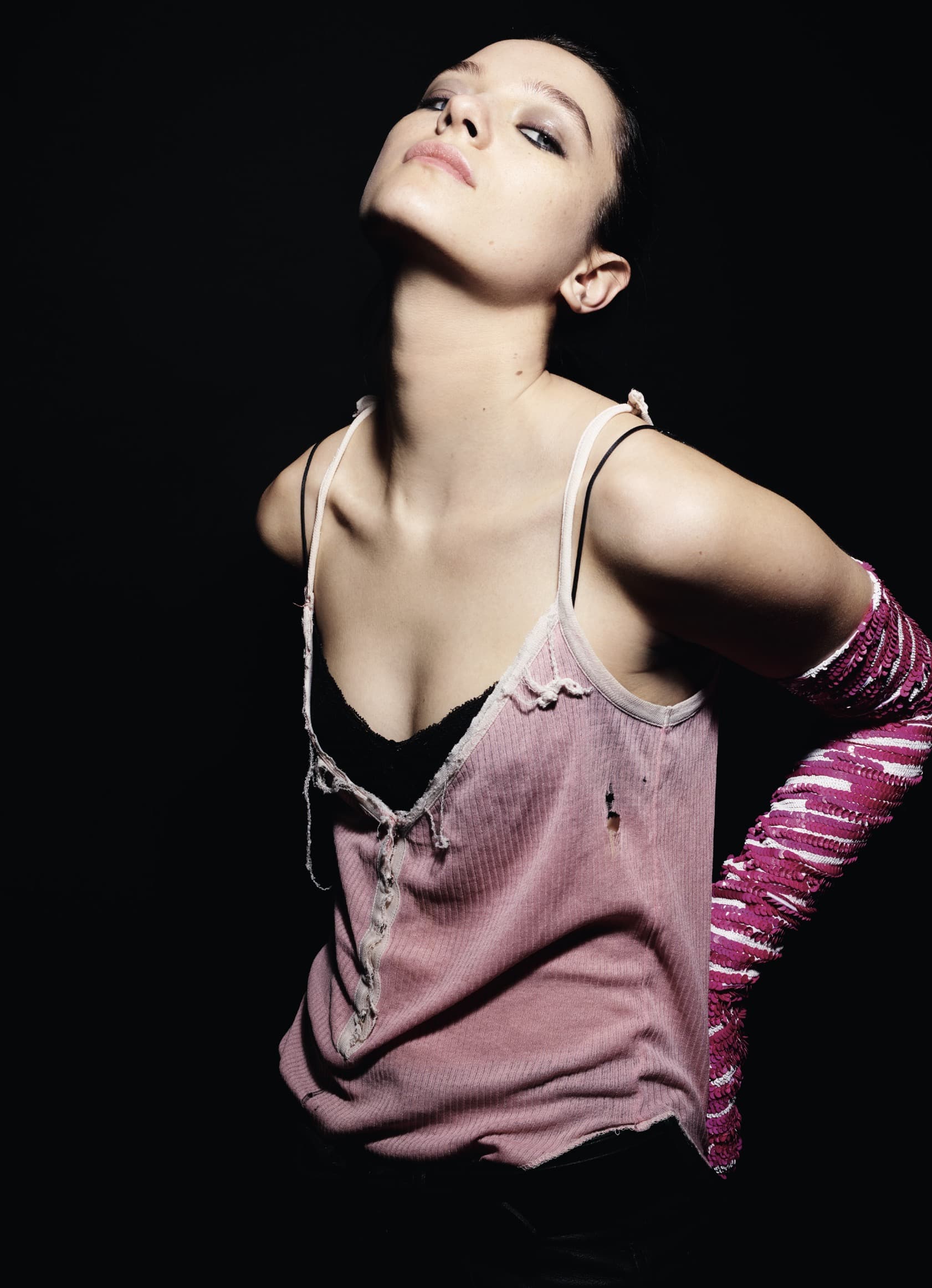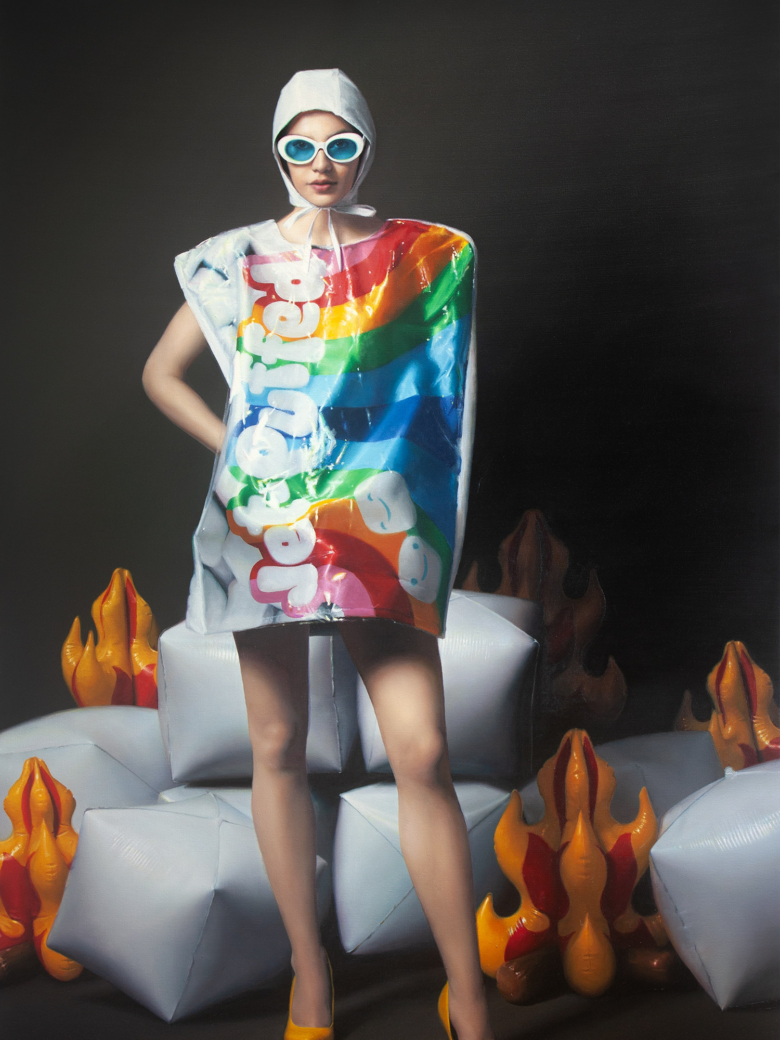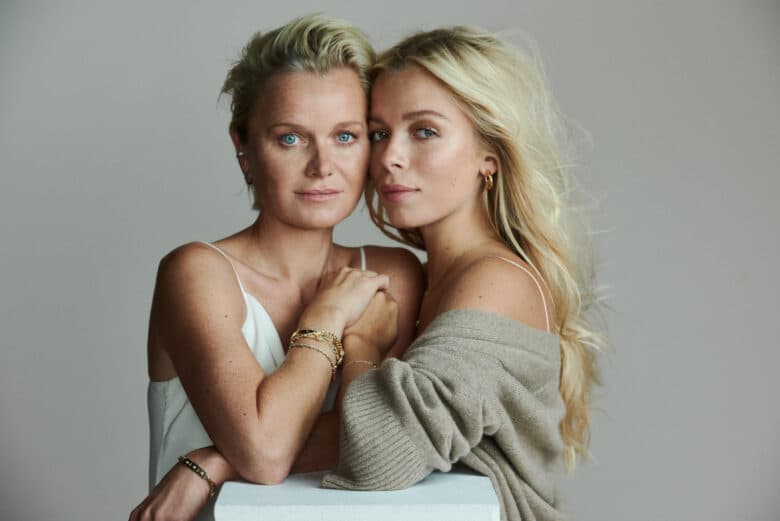Esmé Creed-Miles on becoming Hanna and growing up in a creative world
Daughter of some of Nottingham’s finest, indie-deity Samantha Morton and The Fifth Element’s Charlie Creed-Miles, her childhood was full of creativity and care. “My parents have always been very supportive of any of my creative endeavours: I’m really into music, and I went to art school,” Esmé explains. But, feeling unstimulated by her classes, she dropped out of school at 17 and began auditioning for roles “as a band-aid for boredom”. Out of ennui sprung new beginnings, and although Esmé was bitten by the acting bug long ago – starring in Harmony Korine’s Mister Lonely at only age seven – her work as an adult is proving to be “on a whole other level”.

In fact, back in February 2018, it was announced that Esmé would take on the titular role in Amazon’s reboot of Hanna, turning the cult 2011 action film into a sharp new series directed by Sarah Adina Smith and scripted by the original co-writer David Farr. Emphasising her gratitude for the intensity of the role and the promising opportunity so early on in her career, she put her all into it: “I worked really hard,” she says. “It was overwhelming, but very informative. I’ve learnt a huge amount, especially about myself. The whole thing was really a privilege.” Following the tumultuous life of a young woman in a dystopian world, the high-concept thriller was a visceral journey for Esmé herself: filmed across Hungary, Slovakia, Spain and the UK, sometimes in utterly remote settings. “It was really hard work being that isolated,” she says of the filming process, “but an amazing opportunity to learn about filmmaking in such an intimate way, which I’d never done before.”
Inspired by both her creative upbringing and her deep-end plunge into acting, Esmé fell for cinema – and hard. Whether emerging herself in the worlds she stepped into or watching from afar, it’s given her a desire to create more than ever: “Last year I immersed myself in film and found myself wanting to be behind the camera, so I actively studied cinema.” She has embarked on creating her own short film. “I really want to direct and write,” she says, “I don’t just want to be an actor.” It seems that for Esmé, the step between the spotlight and the viewfinder was a logical move: “I don’t think any discipline is mutually exclusive. I feel like if you’re good at one, you’re good at them all. It’s just about channeling your personal experiences into art.”
But, in today’s turbulent times, in a climate revealing just how unwelcoming and misogynistic the industry is, does it feel positive to be a woman in film? “Fucking yeah!” Esmé assures me. “Systemically as a woman, it can instil a lack of confidence in you and I have experienced levels of that. But seeing women do amazing work everywhere, and by broadening my horizons on social media, it’s helped change my perception of female authorship.” The bittersweet nature of the movement is not lost on Esmé, yet the sense of community is thriving through the shared struggles: “In some of the conversations being had right now, they’ve articulated my own disillusionments. We are living in one of the most right-wing times of the past 100 years, but because of that we’re also living in some of the most theoretically exciting times.”

Starring as the lead of Bill Buckhurst’s Pond Life, Esmé approaches a role very unlike her own reality, but does so with an integrity and understanding far beyond her teenage years. Set in a 1994 Yorkshire ex-mining village, the film follows protagonist Pogo, who – although not fully divulged in the script – has suffered an incident of serious abuse which has left her mentally handicapped. “I haven’t personally experienced anything like that, but I do know people who have and I have seen first-hand the implications of those experiences,” she says. It was a hard-hitting project: “To prepare was really a case of studying people’s behaviour, from watching documentaries to chatting with the director. But after, I did try to disassociate because I was really affected by the role – it was so ruthless and raw.” Aware of her own privilege in life, Esmé tells me her empathy is what drove and taught her: “Not only is this person dealing with abuse but also dealing with poverty and that was even more of a shock. Some of the locations we shot in were something I’d never really seen before, being in those neighbourhoods made me even more empathetic.” The film encompasses the community struggles as powerfully as it emphasises the intimate stories, and Esmé worked to ensure its portrayal was genuine: “I’m a middle-class person, but my mum [Samantha Morton] is certainly not. When she saw the film she thought it dealt with all the issues appropriately, without being voyeuristic and patronising, which working-class narratives can be.”
From Buckhurst’s debut feature to both Dark River and Hanna, Esmé’s projects prove an awareness and an integrity on a par with established actors. When asked whether or not our lives can be changed through the arts, Esmé deliberated and looked to non-binary American poet Eileen Myles. “Myles is someone who deals with that so well – their poems are at the forefront of liberal, non-binary conversations, and yet they manage to tie in an emotional retribution for dealing with politics; that’s a prime example of someone who is taking on the modern world with such eloquence, creativity and power.” For her own future, Esmé is looking to do work that she cares wholeheartedly about: ”Art is such an important reality escape and humans desperately need that. I don’t know if it’s going to have any political impact, but it’s sure as hell needed for our sanity.”
Hanna is out now. Pond Life will be in cinemas on 26 April 2019.

